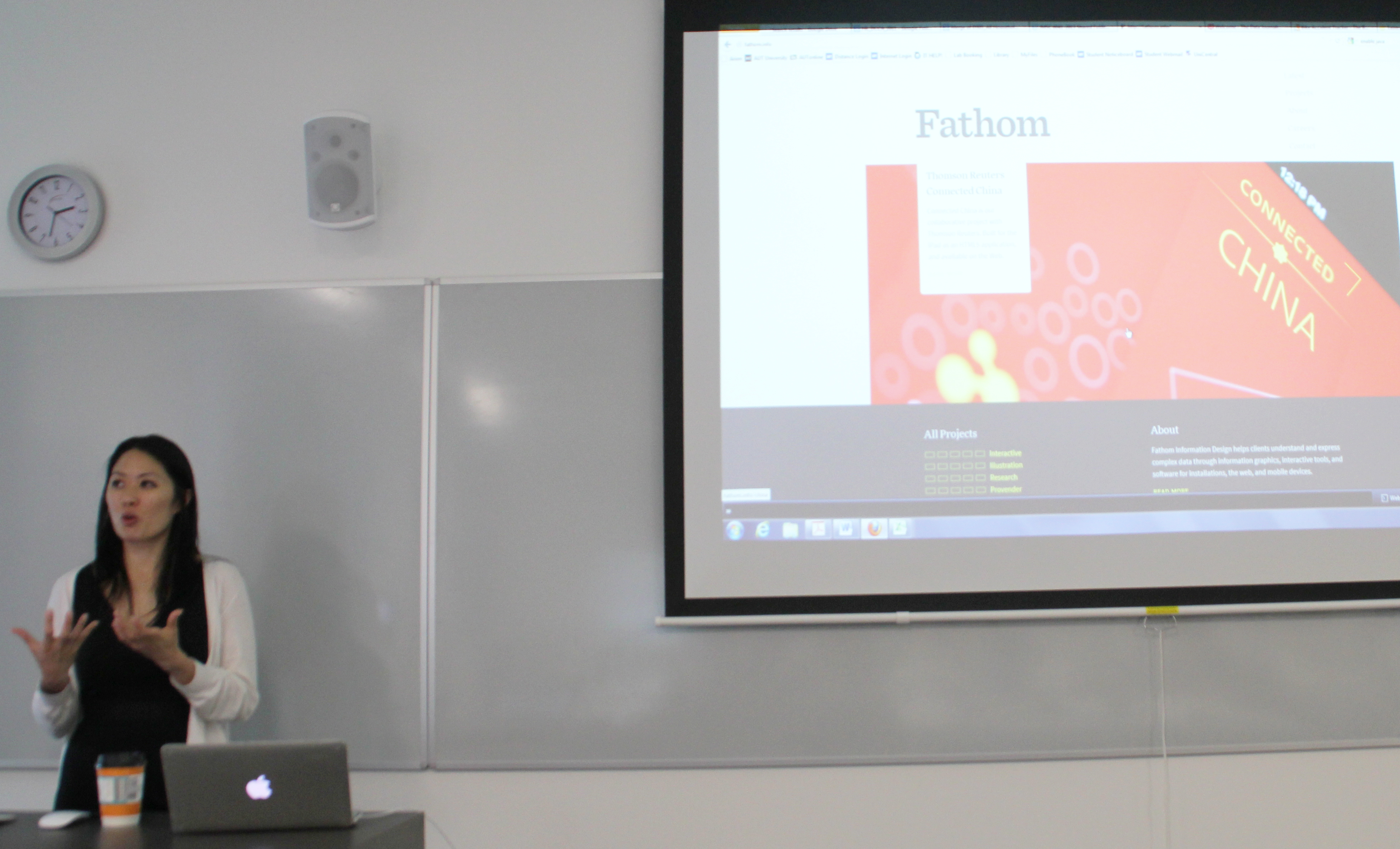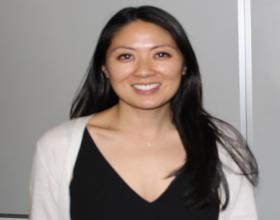
AUCKLAND (Pacific Media Watch): Future journalists “cannot ignore data journalism”, says Irene Jay Liu, news editor for data at the Thomson Reuters Hong Kong division.
“It’s not an excuse anymore to say, ‘I don’t do maths’! You have to understand that! You know, basic numeracy is essential for daily life and even more essential for reporting,” the Chinese-American editor told Pacific Media Watch in an interview after a seminar at AUT University.
The seminar was co-hosted by the Asia-New Zealand Foundation.
Justifying journalism
Several media scholars say that journalism is in a crisis, and point to layoffs in the newsroom, closure of local and regional newspapers, decline in newspaper circulation and other aspects to back up their claim.
Furthermore, the digital revolution has made it possible for the common person to find information he or she previously has relied on journalists for. A way to justify the continued existence of journalism is therefore data journalism, according to Irene Jay Liu.
“We as journalists need to differentiate ourselves. We need to bring a level of authority and competence and additional insight into what we do. I think that data journalism is one area where we can continue to provide additional asset, and justify why we get paid to do this on a day-to-day basis,” the Yale and Columbia graduate said.
“The beauty is that journalists are now taking the best of social science techniques and other methodologies and incorporating them into our own reporting. We don’t have to rely on quote unquote ‘the experts’ anymore.”
"We can actually build our own expertise, and vet information ourselves, combining it with what we’re very good at, which is story-telling, and finding ways to engage readers on topics that sometime can be quite dry or complex. It furthers our ability to explain an increasingly complex world,” Jay Liu explained.
Useful tips
Irene Jay Liu moved to Hong Kong three years ago, where she is today both a lecturer in data journalism at the University of Hong Kong and news editor of data at Thomson Reuters.
Prior to that Jay Liu has worked in print and radio journalism in the US, as well as being the senior reporter of the Hong Kong newspaper South China Morning Post.
She told PMW that journalists getting into data journalism today would have a “first-mover advantage” ahead of others.
She firmly believes that data journalism represents the future of journalism.
Jay Liu listed three concrete tips on how the average journalist can get an understanding of data journalism:
“I would say first and foremost understand basic math concepts. You need to master them!
“Second thing is I would say most of the skills that you would use on a daily basis in general are free and not very difficult to self-teach. You don’t have an excuse not to know how to use Excel, because there are lots of tutorials that are available for free. You don’t need to go to a class. You don’t need to get a degree in it to learn how to use Excel and pivot tables.
“And then lastly, I would say read good work! And try to understand how it was done. That’s the key. That’s how you continue to learn. See how the experts are doing it, the masters of journalism and data journalism in particular. Look at the good examples and try to figure out how you can do the same thing in your local context, or how you can take those techniques and apply them to news stories.”
Links
For more on data journalism, see one of these links recommended by Jay Liu:
School of Data (works to empower journalists and other groups with the skills they need to use data effectively)
Stats for Journalists (need-to-know for journalists)
The Perfect Payday (a Pulitzer Prize winning Wall Street Journal article which used data journalism as its method)
How Companies Learn Your Secrets (a New York Times article on how companies use data and statistics)
Also visit Irene Jay Liu's homepage and Thomson Reuters' Connected China project.
See the full interview with Irene Jay Liu:
DD: Why should journalists be more concerned with data journalism?
IJL: I would say that it’s the future. I mean more and more every person, every organisation, every entity has a digital footprint – and all of that is data. So, if you want to be a journalist and you want to have every source available to you, you can’t ignore data, you can’t ignore numbers or the techniques you need to use to search your documents or collect information, and most importantly structure information and be organised about it, because we can’t get away from it.
The beauty is that journalists are now taking the best of social science techniques and other methodologies and incorporating them into our own reporting. We don’t have to rely on quote unquote ‘the experts’ anymore. We can actually build our own expertise, and vet information ourselves, combining it with what we’re very good at, which is story-telling, and finding ways to engage readers on topics that sometime can be quite dry or complex. It furthers our ability to explain an increasingly complex world.
DD: What made you interested in data journalism?
IJL: I kind of just fell into it. I’ve always been interested in these techniques, you know, mapping and using Excel and other programmes because it’s more efficient than having to use a calculator or whatever it is. And also it is a way of organising a lot of information, and I think that that’s something that we have to. We’re flooded with tons of information and data and feedback all the time, so finding a way to structure and organise and understand it is really important.
DD: What would be your two or three most useful tips in data journalism for the average journalist?
IJL: I would say first and foremost understand basic math concepts. You need to master them! It’s not an excuse anymore to say ‘I don’t do math’! You have to understand that! You know, basic numeracy is essential for daily life and even more essential for reporting. First.
Second thing is I would say most of the skills that you would use on a daily basis in general are free and not very difficult to self-teach. You don’t have an excuse not to know how to use Excel, because there are lots of tutorials that are available for free. You don’t need to go to a class. You don’t need to get a degree in it to learn how to use Excel and pivot tables.
And then lastly, I would say read good work! And try to understand how it was done. That’s the key. That’s how you continue to learn. See how the experts are doing it, the masters of journalism and data journalism in particular. Look at the good examples and try to figure out how you can do the same thing in your local context, or how you can take those techniques and apply them to news stories.
DD: Are there any common errors you see in everyday journalism that you think could be avoided if a journalist had better knowledge of data journalism?
IJL: Yeah, I think that we often write about polls and surveys that often don’t deserve any space in print or online. That’s the main thing; we have to be able to vet information, and we have to be able to vet the statements and claims and the narratives that those that we cover are trying to push. That’s the beauty of where we are right now. We have the tools now. They’re in our grasp. They are very easy to use, and they’re not expensive. We can vet statements and data on our own now, but there’s a huge responsibility to doing that well. I like to say that the technologies and the tools that are now, and the state that we are in – in terms of the internet – any person can commit journalistic acts. They can shoot videos, they can write opinions, they could even do very strong reporting on their own, and they have a platform on the internet to publish. We as journalists need to differentiate ourselves. We need to bring a level of authority and competence and additional insight into what we do. I think that data journalism is one area where we can continue to provide additional asset, and justify why we get paid to do this on a day-to-day basis.
DD: Do you think there are any particular aspects of data journalism that we here in New Zealand and the Pacific as such, can benefit from?
IJL: I think the exciting point that we’re in right now is that this is all quite new. All these techniques are still evolving and the tools are changing and improving every single day. So applying some of these techniques; well, essentially it is low-hanging fruit. There are tons of stories that are out there that are data-driven or driven by documents that are out there, you know, connecting different data sets and following the money, that are available now that we can do with the tools that are available to us. So you could spend years just picking the low-hanging fruit and writing those stories, so it’s a really exciting time. I think that in New Zealand and elsewhere, because this is still a new field globally, those who take advantage of these opportunities will have first-mover advantage.
This work is licensed under a Creative Commons Attribution-NonCommercial 3.0 New Zealand Licence.




